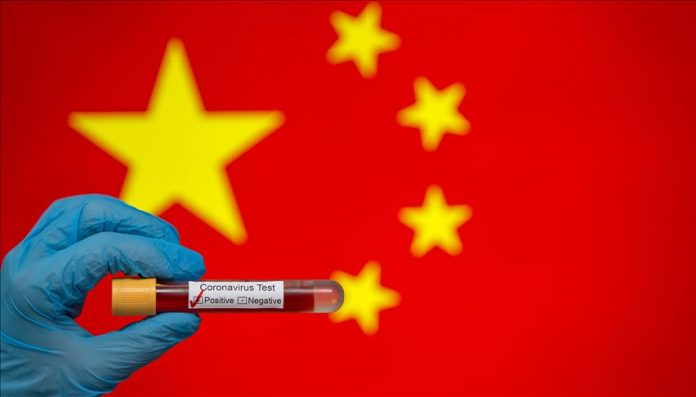This article is written by Krusha Bhatt. She is an Assistant Lecturer at Jindal Global Law School, Sonipat.
Table of Contents
Introduction
There are scores of hearsays with respect to the way Covid- 19 has leaked out as an international health emergency affecting millions of lives around the world and massively disturbing the global economy. The skepticism has led to raise allegations that China in preference to sharing the information about the coming pandemic, rather suppressed, censored and misrepresented the data. Had China taken precautionary measures earlier, the spread of the Coronavirus globally could have reduced by 95%, shows a study at the University of Southampton. This statistical data alone is capable of contemplating China’s mens rea. Furthermore, a conspiracy theory has also emerged injecting suspicion on whether China deliberately used the novel virus as a ‘bioweapon’. Hypothetically assuming all these contentions to be true, in addition to potential manifold footing accessible under the dimension of international law as we will see further, the act of China is in blatant violation of international customary principle, pacta sunt servanda, i.e. acting in good faith, as adopted under Art. 31 of the Vienna Convention on the Law of Treaties, 1980.
The path of legal consequences of the communist Chinese act can be found primarily under the shelter of World Health Organisation’s International Health Regulations, 2005 (IHR) as the epidemic relates to ‘public health’. A reference to the International Court of Justice can also be made for looking into the matter or seeking its advisory opinion. The US based political interest group, FreedomWatch has already approached the International Criminal Court under Art. 15 of the Rome Statute to open an investigation against People’s Republic of China for willful creation, release and proliferation of Covid- 19 as a crime against humanity.
With the given conjecture, this article tries to make an attempt to evaluate China’s conduct and connect the dots of allegations made against the demeanor of China with international law/ public international law in order to reveal whether China can be held responsible towards the international community. If the answer to the hypothesis is affirmative, this article will further examine the remedies available against the guilty conduct of China.
The Law of State Responsibility vis-à-vis Covid- 19
There is clearly no doubt about the legal personality of China in international law. As a ‘State’, China is indeed a subject of international law and therefore, can be held liable for any unlawful actions of its own. Health officials around the world and other States have heavily criticized Chinese government’s non- cooperative or rather secretive behavior in controlling the spread of Severe Acute Respiratory Syndrome (SARS) disease. State Responsibility being one of the fundamental principles of international law, requires the defaulting State paying for reparations for any obligations omitted as held in the famous cases of Spanish Zone of Morocco and Chorzow Factory Case. The text adopted by the International Law Commission (ILC) as established by the general Assembly under the umbrella of the United Nations on Responsibility of States for Internationally Wrongful Acts is a primary document talking about the responsibility of a State for a breach of international obligation. Under Art. 31, it further also provides for the legal consequences of an internationally wrongful act including reparation which may be in the way of compensation if the damage caused cannot be restored as per Art. 36. The spread of pandemic and the damage caused is so severe, restoration does not seem to be an option. The least the injured States can ask is to pay for reparations to make up for the damage caused socially and economically by China’s conduct.

Obligation under IHR
The obligation we are talking here about is raised from the International Health Regulations of 2005 whose purpose and scope as mentioned under Art. 2 is to ‘prevent, protect against, control and provide a public health response to the international spread of disease in ways that are commensurate with and restricted to public health risks, and which avoid unnecessary interference with international traffic and trade’. IHR are adopted under the ambit of World Health Organisation to which China is a party and as per Article 7 of the regulations, any unexpected or unusual public health events such as Covid- 19 in the matter at hand, within a territory of a State i.e. China which may become an international public health concern must be notified to the WHO within 24 hours of the assessment of public health information as provided under Article 6.
As a general principle of international law, treaties are of binding nature and must be adhered to. And therefore, China was obliged to follow the norms agreed by it however it did not. Based on Chinese records, numerous media sources have reported that China encountered its first case of coronavirus as early as 17 November 2019 in the capital city of Province Hubei, Wuhan. However, China informed the regional office of WHO about a type of pneumonia of unknown cause on 31 December 2019 almost a month later. The first person, Dr. Li Wenliang who tried to blow the whistle about the Severe Acute Respiratory Syndrome (SARS) like diseases as early as 31 December 2019 and died later on, was reprimanded by the Public Security Bureau for ‘making false comments’ and ‘severely disturbing public order’. From the records, it can be whispered that China indeed was capable of notifying WHO earlier that it did, owing to the fact that a similar kind of disease had affected 26 countries in 2003.
Settlement of Dispute under IHR
As per Article 56 of the regulations any issues arising out of the interpretation and application of the terms between States, should be resolved through alternate dispute resolution mechanisms such as negotiation, mediation and conciliation first. If they fail to do so by those means, the dispute should be tried to resolve through arbitration by writing to the Director General. Considering the practical scenario, China is neither going to accept the existence of any dispute arising out of the terms of the regulations nor will it ever submit to any of the alternate dispute settlement mechanisms. Therefore, the probability of getting this concern resolved under the dispute settlement mechanism of IHR is extremely unlikely.
Invoking Jurisdiction of International Court of Justice (ICJ)
Article 75 of the WHO’s constitution can work as a base for invoking jurisdiction of the ICJ as it provides that, ‘Any question or dispute concerning the interpretation or application of this Constitution which is not settled by negotiation or by the Health Assembly shall be referred to the International Court of Justice in conformity with the Statute of the Court, unless the parties concerned agree on another mode of settlement.’ Here, the settlement of dispute by negotiation should not be treated as a prerequisite as ICJ, in its previous ruling in the matter of India v. Pakistan (Jadhav Case) waived off the protocol for arbitration for approaching the Court while interpreting Vienna Convention on Consular Relation. Another route for approaching ICJ’s jurisdiction is through its compulsory jurisdiction to resolve any legal dispute. In the absence of any special circumstances leading to any explicit legal dispute, invoking compulsory jurisdiction of ICJ is a challenging task as existence of any legal dispute is a prerequisite for summoning Article 36(2) of the statute. Under the ambit of Article 76, WHO can request ICJ to deliver an advisory opinion in the matter at hand as it has done before in the matter of Legality of the use by a State of Nuclear Weapons in Armed Conflict.
Conclusion
The primary task for the State(s) at the moment right now is definitely to look after the way the pandemic is spreading and to protect the interest of their citizens in the best way they can. However, once the dust of pandemic fades away then everyone will start to figure out a way to recover the injury and impairment caused. As the US has already started going after China, it will take only a few moments for the rest of the States to follow. Then, it will definitely be interesting to learn about how international law is capable of tackling situations like these.
LawSikho has created a telegram group for exchanging legal knowledge, referrals and various opportunities. You can click on this link and join:
 Serato DJ Crack 2025Serato DJ PRO Crack
Serato DJ Crack 2025Serato DJ PRO Crack









 Allow notifications
Allow notifications


